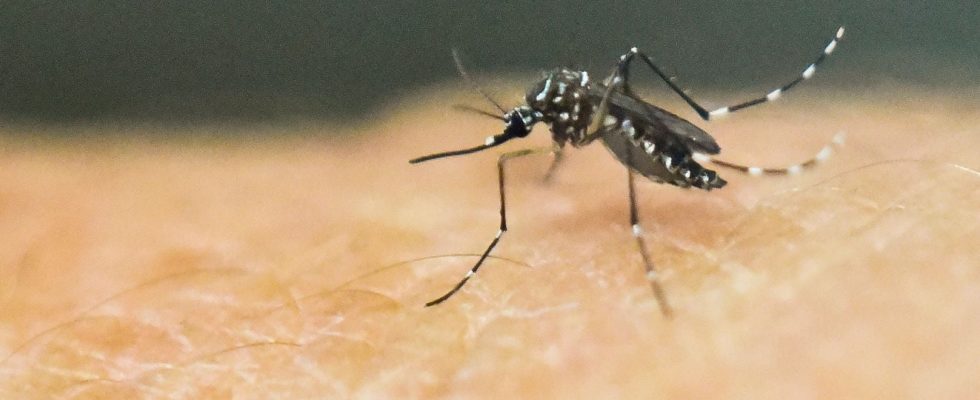1,180%. This is the percentage increase in the number of cases of dengue fever in mainland France between 2023 and 2024. This viral disease widespread in hot countries which, thanks to climate change, tends to make its nest in Europe. “We are facing an unprecedented situation,” admitted the Director General of Health, Doctor Grégory Emery during a press conference.
More precisely, from January 1 to April 18, 1,679 imported cases of dengue fever were recorded in mainland France. According to data from Public Health France, there were only 131 in 2023 over the same period.
These “imported” cases concern people who have traveled to regions of the world where this virus transmitted by a tiger mosquito (Aedes albopictus) bite is endemic. Since mid-2023, the vast majority of dengue cases imported into mainland France have come from the French West Indies.
Dengue outbreak in the Americas
This progression of the disease in mainland France is therefore not unrelated to the outbreak of the viral disease transmitted by mosquitoes. in the Americas and the Caribbean. “What we are observing in France is a mirror of what is happening in the Antilles, and more broadly in the Latin America and Caribbean area,” explained Doctor Caroline Semaille, Director General of Public Health France.
Already at the end of March, the Pan American Health Organization (PAHO) warned that Latin America and the Caribbean should expect the worst dengue season on record, fueled by the El Niño climatic phenomenon. According to Doctor Semaille, almost a fifth of cases are over 65 years old. “Fortunately, very few children” are affected by the disease, notes the doctor. Because although it is most often benign, dengue fever can progress, in around 1% of cases, to a more serious form, notably causing bleeding. But most of the time, the symptoms that appear within three to fourteen days following the mosquito bite are flu-like.
Concern a few weeks before the Olympics
The fact remains that less than three months before the opening ceremony of the Olympic Games, this upsurge in cases of dengue fever on French soil is worrying the health authorities. Among the main infectious risks induced by large gatherings such as the Olympic Games, the Covars (Committee for Monitoring and Anticipation of Health Risks) recently placed at the top “the imported cases of arboviruses and their risk of dissemination during the period summer activity of mosquito vectors.
The Director General of Health called for “being vigilant and adopting the right actions to limit the proliferation of the tiger mosquito”. And for good reason, “the significant number of imported cases could lead to the establishment in France of indigenous chains of transmission”. And to call on everyone to “make life difficult for mosquitoes”. By eliminating stagnant water in and around habitats in particular: under pots, cups, gutters, rubbish, etc.
Good actions to follow
Travelers in risk areas, notably Martinique, Guadeloupe and Guyana, are recommended to protect themselves from bites. By wearing long, loose clothing for example, or by using mosquito nets and repellents. When returning from a risk area, it is imperative to protect yourself for three weeks against bites. This, even in the absence of symptoms.
In the event of infection, treatment is mainly symptomatic, particularly against pain and fever. But be careful: aspirin and non-steroidal anti-inflammatory drugs are contraindicated due to the risk of bleeding.
